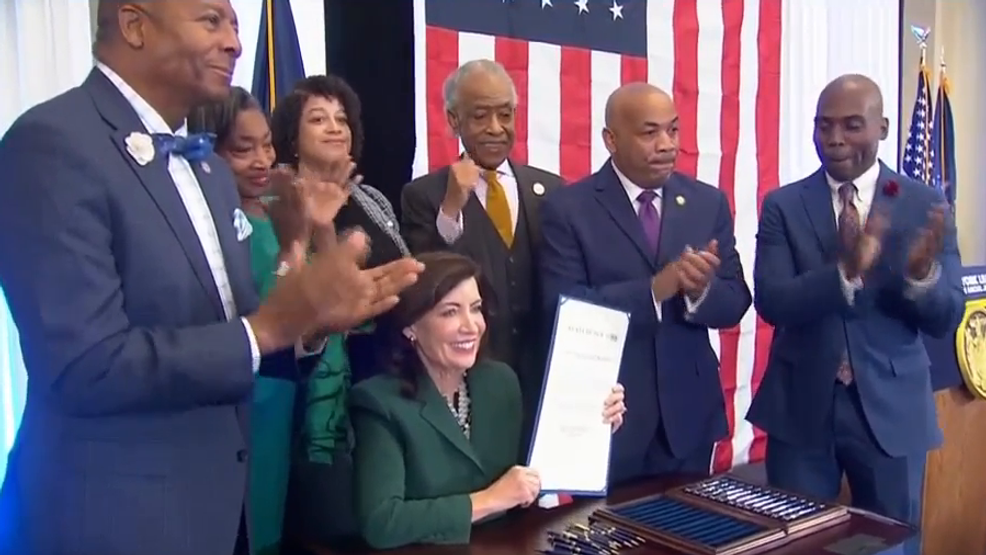
Albany — The newly formed New York State Community Commission on Reparations Remedies, signed into law in December 2023, will be given $5,000,000 to conduct its work.
The nine-member Commission is expected to examine the lasting impact of slavery for individuals past and present in the State of New York. They then will issue a report of recommendations for action, of which will then head to the Governor and legislature.
“I think New York can take the leadership here and develop a good road map,” Dr. Alice Green of Albany’s Center for Law and Justice says.
Organizations like Green’s will be a part of the Commission’s process, gathering information about experiences of the impacted individuals.
“We’re in the process of planning a series of discussions and also projects that will educate people about that, and also to teach people in the community about our legal system, our policing system, our court system, so they’ll be much more involved in coming up with ways to change the system,” Dr. Green says.
After some debate among Democrats, the FY2025 Enacted Budget has allocated $5 million for the commission to conduct its work. The bill text says members shall receive no compensation, but will be reimbursed for “actual and necessary” expenses incurred in the performance of their duties.
“Everybody thinks it all happened down south, right? One out of five New Yorkers were slaves,” Governor Hochul said at the NAN Convention in April. “And we’re going to study the possibility of how we can help right the wrongs of the past because you cannot move forward until you acknowledge the ugliness, and the racism and the cruelty of the past.”
The commission will have the power to solicit public input, hold public hearings, obtain state data, while also coordinate with historical black colleges, universities and research centers.
The initial announcement, and bill signing, was met with some pushback though. Republican Senate Minority Leader Rob Ortt released a statement saying the reparations could come at an astronomical cost for New Yorkers.
But, lawmakers have left the recommendations open-ended, meaning they can be anything from payment, to policy.
“Policing is a major part of all of this, for me I think that’s a key thing,” Dr. Green says. “I think the legislature has done some good work in at least accepting that they need this Commission to go forward, we’re trying to get it nationally, but that hasn’t happened yet.”

